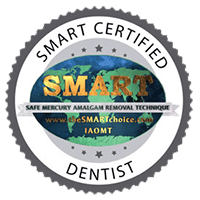Can TMJ cause ear pain or headaches?
Yes, absolutely. TMJ disorders often radiate pain to nearby areas, including ears, temples, and even down the neck.
How long does it take for TMJ treatment to work?
It depends on the cause and the treatment. Some patients see improvement within weeks, while others may need several months.
Will I always need to wear a nightguard?
Not necessarily. Many patients wear one for a period of time, then phase out use once symptoms improve and habits change.

OR Call (253) 863-7005
18008 State Route 410 East, Suite A
Bonney Lake, WA 98391
Dr. Carla Yamashiro, The Holistic Dentist
Ecologic Dentistry, PLLC







